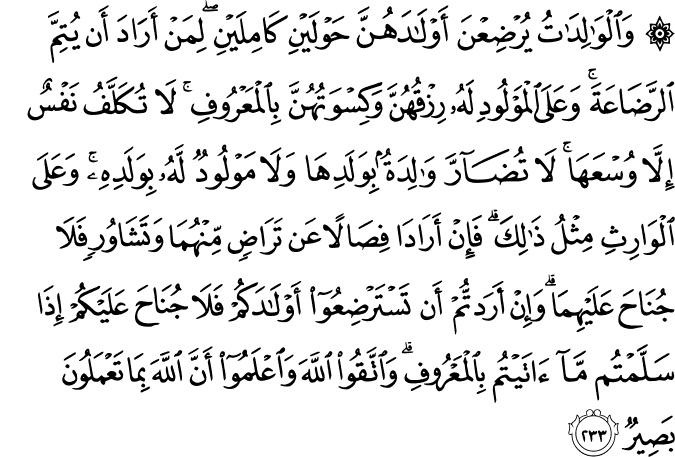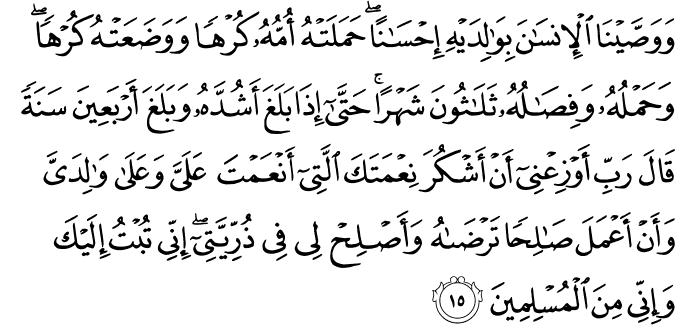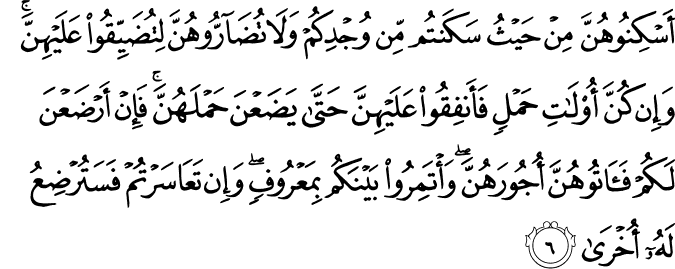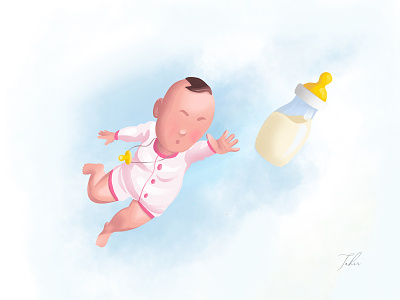Breastfeeding in the Quran.
Not everyone knows that mother’s breast milk is very important for the growth and nutrition of the baby. But if in any book about 1400 years ago, the child is encouraged to feed the mother’s breast milk again and again, then it has to be surprised. And if that book is not a medical book but a religious book, then the level of surprise increases even more. Yes, that great book is Al-Quran. Where in not one or two but about 4 verses the child is told to breastfeed. And how long and how to breastfeed the baby is also conveyed.
The first verse in the Quran regarding breastfeeding is Surah Baqarah verse 233-

And childbearing women shall breastfeed their children for two full years if they wish to complete the full period of breastfeeding . And the responsibility of all those women who have children, that is, the father, is according to the conventional rules. No one is subjected to pressure beyond his capacity. A mother cannot be harmed for her child. And the one whose child is not to be harmed because of his child. And this is the responsibility of the heirs. Then if the parents wish, they can wean them within two years by mutual consultation, there is no sin on them, and if you wish to have your children nursed by a midwife, then there is no sin in that if you give it in customary exchange. And fear Allah and know that Allah sees all your deeds very well. [ Surah Baqarah 2 :233 ]
Breastfeeding in the Quran.
In this verse, Almighty Allah has told to breast feed the child for two whole years. And if for some reason it is not possible for the mother to breastfeed the child, then the child is asked to drink milk even if necessary with the help of a midwife. Our beloved Prophet (PBUH) drank the milk of Bibi Halima, the midwife.
The next verse is Surah Lokman verse 14. And here also the child is asked to breastfeed for two years.

And We have commanded people to ˹honour˺ their parents. Their mothers bore them through hardship upon hardship, and their weaning takes two years. So be grateful to Me and your parents. To Me is the final return. [ Surah Luqman 31:14 ]
After that, in verse 15 of Surah Ahkaf, it is mentioned about feeding the baby.

And We have enjoined upon man, to his parents, good treatment. His mother carried him with hardship and gave birth to him with hardship, and his gestation and weaning [period] is thirty months. [He grows] until, when he reaches maturity and reaches [the age of] forty years, he says, “My Lord, enable me to be grateful for Your favor which You have bestowed upon me and upon my parents and to work righteousness of which You will approve and make righteous for me my offspring. Indeed, I have repented to You, and indeed, I am of the Muslims. [ Surah Ahqaf 46:15 ]
Breastfeeding in the Quran.
Interestingly, in the previous two verses, the Quran mentions breastfeeding the child for two years. However, Surah Ahqaf specifies the combined period of pregnancy and breastfeeding as 30 months. Almighty Allah intends to convey a unique message here. According to Surah Baqarah and Surah Luqman, the Quran emphasizes that the mother should breastfeed her child for two years, equivalent to 24 months. Notably, these verses do not mention pregnancy.
Photo: According to the verses of the Quran, a mother can breastfeed a 6-month-old pre-mature child for 24 months or 2 years.
Verse 6 of Surah Talaq says-

Give them the kind of house you live in according to your ability. Do not endanger them by suffering. If they are pregnant, will bear their expenses till delivery. If they breastfeed your children , give them due remuneration and consult each other in moderation . If you insist on each other , the other woman will breastfeed . [ Surah Talaq 65:6 ]
That is, even after divorcing the wife, the responsibility of the child’s father is to take responsibility for the child’s breastfeeding. Even if the mother does not want to breastfeed, the child should be breastfed with the help of another woman if necessary.
But we have seen how in the Qur’an God Almighty has repeatedly encouraged the child to breastfeed. A 1400 year old scripture encouraging babies to breastfeed is incredibly common and miraculous.
